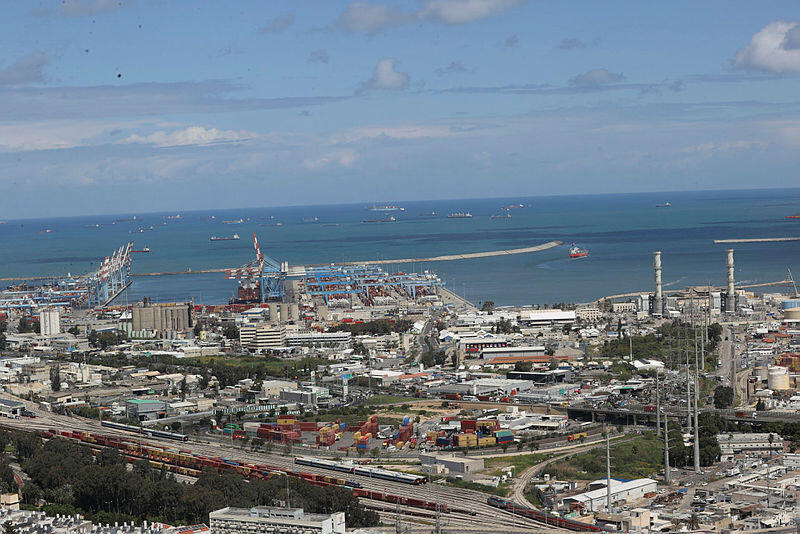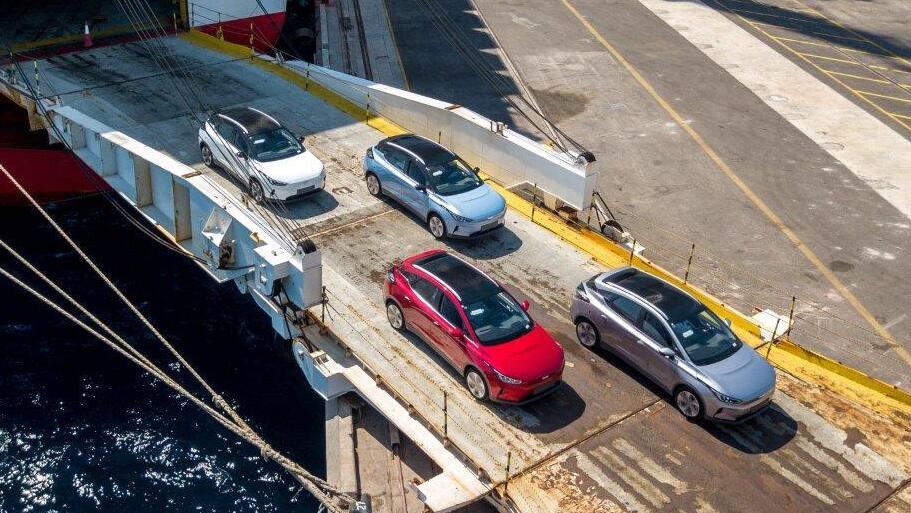Getting your Trinity Audio player ready...
For the past eight months, a multi-front conflict has raged in Israel, impacting the nation in unexpected ways. In the Red Sea, Iranian-backed Houthi rebels in Yemen have disrupted crucial trade routes, sending shockwaves through the Israeli car market, which relies on the Orient (China, Japan, South Korea, etc.) for half of its vehicle imports.
To shed light on these challenges and the innovative solutions emerging in response, industry leaders gathered to share their insights.
Liora Hadar from the Haifa Port described the unprecedented situation they're facing. "We started October 7 already with a busy port due to numerous agreements we had closed with importers from the East who had already begun anchoring here," she said.
The following day, they received a notice that all of Israel's imported vehicles were set to arrive at the port. This influx demanded swift action.
"Accordingly, we had to prepare in a very short time for the reception, allocation of external areas, and obtaining various regulatory approvals," Hadar said and the immense pressure from the move.
"The period was not simple, and the challenges were many, with significant pressure from customers as there was nowhere to offload the vehicles. There were issues with transporters for moving the vehicles, but ultimately we overcame all the challenges, and in less than five months, we received more than 50,000 vehicles at Haifa Port."
Dani Shavit, CEO of car importer Lubinski Group, highlighted the shift in car import logistics. "If previously we used to bring MG cars from China with roll-on/roll-off ships mainly to Eilat Port, and occasionally to Ashdod Port or Haifa Port via the Suez Canal, today it's a bit different," he explained.
The Red Sea conflict forced a rerouting. "Today, roll-on/roll-off ships are required to make a detour around Africa, so if the previous transit time from Shanghai to Eilat Port was 22 or 23 days to Ashdod, today it takes between 41 to 48 days. That's the main implication right now."
Merav Yitzhaki, a shipping industry veteran, offered a broader perspective. "Before October 7, most of the cars that arrived in Israel, whether from Europe or the Far East, came on roll-on/roll-off ships," she noted. However, demand had already begun to outpace supply.
"It is true that in recent years there has been more demand than supply. There is an allocation issue with roll-on/roll-off ships," she said and added that the conflict further exacerbated the situation.
"Therefore October 7 caused NYK and ZIM to stop anchoring in Israel, and essentially did not provide the solution of passing through Africa, so most of the vehicles arriving today from the East come in containers and are doing the detour with ZIM and MSC container ships."
Looking ahead, Yitzhaki anticipates a shift back to roll-on/roll-off ships. "By the end of 2025, the number of roll-on/roll-off ships is expected to increase, and I think car importers will prefer to bring their cars on roll-on/roll-off ships rather than in containers, both in terms of minimizing damage and sailing time."
Gabi Ben Harosh of AIB Express Logistics emphasized the far-reaching impact of the conflict on transportation and logistics. "We transport all the goods in Israel, import and export, everything that moves within the economy," he said. The conflict created an unexpected demand for resources. "In the war, drivers with vehicles and even without vehicles were recruited. Additionally, other trucks were recruited."
This mobilization had cascading effects, as Ben Harosh illustrated with the situation at Haifa Port. "For example, when Haifa Port was clogged, there was no one to offload the additional cars. The drivers and transporters were recruited and it was impossible to help, even though there is a contractual connection." The conflict, he concluded, has had a ripple effect beyond just car transportation. "So the war affected us even more, not just in terms of transporting cars from Eilat Port."




